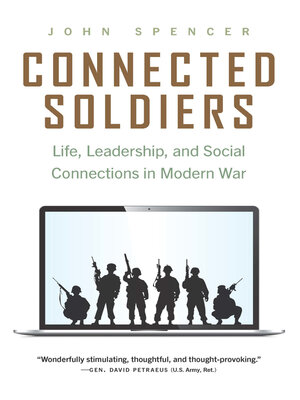
Sign up to save your library
With an OverDrive account, you can save your favorite libraries for at-a-glance information about availability. Find out more about OverDrive accounts.
Find this title in Libby, the library reading app by OverDrive.



Search for a digital library with this title
Title found at these libraries:
| Library Name | Distance |
|---|---|
| Loading... |
Gold Medal for the 2023 Military Writers Society Award
John Spencer was a new second lieutenant in 2003 when he parachuted into Iraq leading a platoon of infantry soldiers into battle. During that combat tour he learned how important unit cohesion was to surviving a war, both physically and mentally. He observed that this cohesion developed as the soldiers experienced the horrors of combat as a group, spending their downtime together and processing their shared experiences.
When Spencer returned to Iraq five years later to take command of a troubled company, he found that his lessons on how to build unit cohesion were no longer as applicable. Rather than bonding and processing trauma as a group, soldiers now spent their downtime separately, on computers communicating with family back home. Spencer came to see the internet as a threat to unit cohesion, but when he returned home and his wife was deployed, the internet connected him and his children to his wife on a daily basis.
In Connected Soldiers Spencer delivers lessons learned about effective methods for building teams in a way that overcomes the distractions of home and the outside world, without reducing the benefits gained from connections to family.
John Spencer was a new second lieutenant in 2003 when he parachuted into Iraq leading a platoon of infantry soldiers into battle. During that combat tour he learned how important unit cohesion was to surviving a war, both physically and mentally. He observed that this cohesion developed as the soldiers experienced the horrors of combat as a group, spending their downtime together and processing their shared experiences.
When Spencer returned to Iraq five years later to take command of a troubled company, he found that his lessons on how to build unit cohesion were no longer as applicable. Rather than bonding and processing trauma as a group, soldiers now spent their downtime separately, on computers communicating with family back home. Spencer came to see the internet as a threat to unit cohesion, but when he returned home and his wife was deployed, the internet connected him and his children to his wife on a daily basis.
In Connected Soldiers Spencer delivers lessons learned about effective methods for building teams in a way that overcomes the distractions of home and the outside world, without reducing the benefits gained from connections to family.







